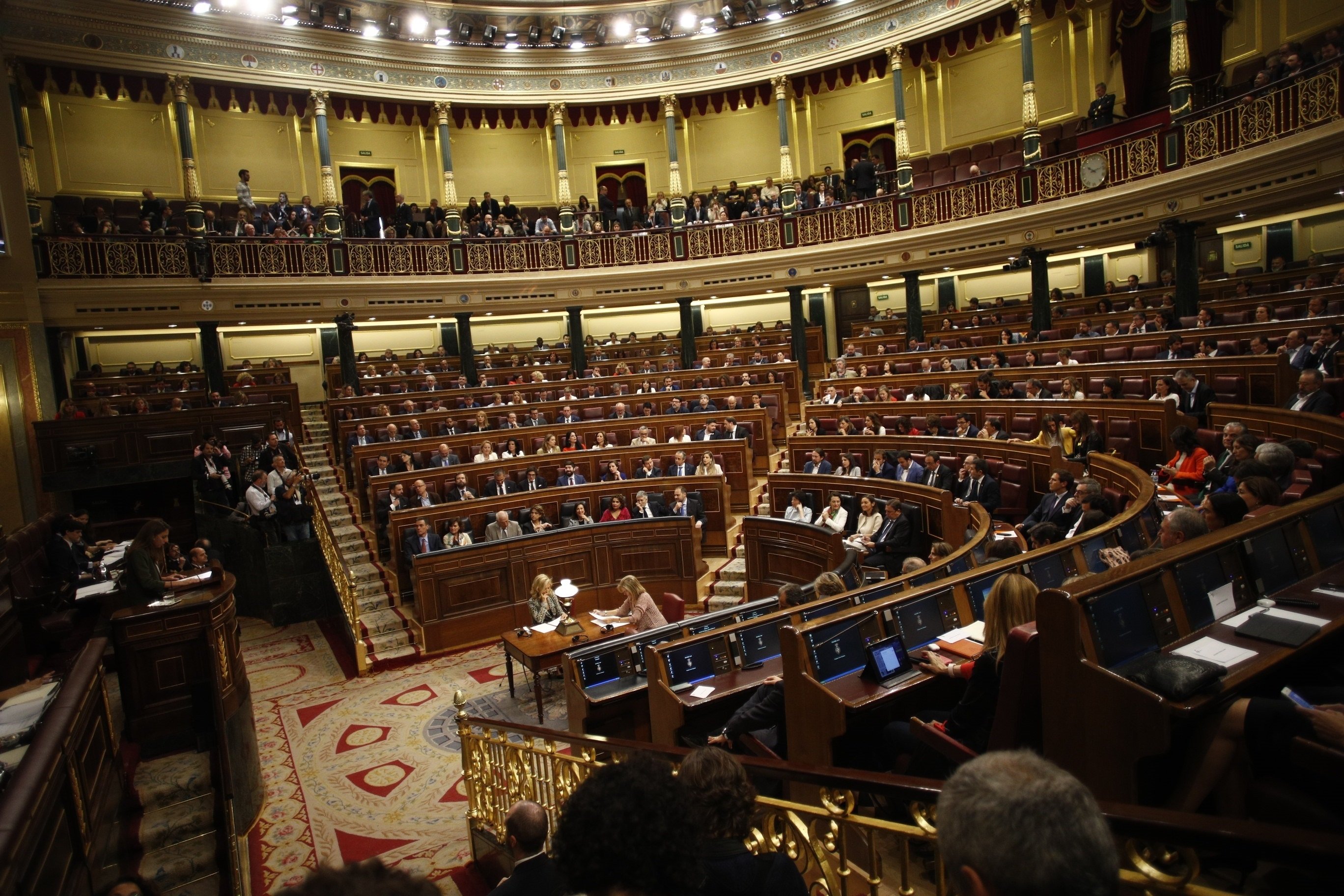A new common front in Spain's Congress of Deputies, this time to stand against political espionage. Ten political parties, from Unidas Podemos to the pro-independence, nationalist and sovereignist parties from around the Spanish state, have registered a request for a commission of inquiry in the lower house to investigate CatalanGate, the use of the Pegasus spyware program to monitor sixty Catalan pro-independence leaders and linked figures. Officially, the Socialist-led Spanish government has washed its hands of the affair, saying that it has always acted in accordance with the law, including with regard to the state's intelligence agency, the CNI. But there is a new rift between the two parties of the Spanish governing coalition.
The request for a commission of inquiry, registered this afternoon, was signed by the spokespeople of Unidas Podemos and their Catalan associates the Comuns, as well as ERC, Junts, the PDeCAT, the CUP, PNB, EH Bildu, BNG, Més País and Compromís. They collectively demand that an investigation be conducted into "the espionage and intrusion, through the Pegasus and Candiru malware, into the privacy of political leaders, activists, lawyers, institutions and their families."
After reviewing the evidence in the explanatory memorandum, the 10 signatory parties warned that "these illegal practices endanger the entire democratic system, undermine fundamental rights and introduce a total and utter lack of protection and legal insecurity." That is why they consider it necessary to investigate the "alleged misuse of estates and public resources for political persecution."
The Spanish government, unmoved
The role of the Spanish secret service agency, the CNI, is once again at the centre of the debate, in this case over the illegal espionage of over 60 pro-independence leaders and other individuals linked to the movement. This has been asserted by Catalan president Pere Aragonès himself this Wednesday. But the Spanish government is defending its intelligence services, which "always act in accordance with current law." This was reiterated today by the body's top political official, defence minister Margarita Robles, who emphasised the "unproven" nature of the accusations against the CNI, an organ "which cannot defend itself". The newspaper El País also reported today that Spanish intelligence says the Pegasus program was bought in order "to spy abroad".
On the other hand, government junior partner Unidas Podemos has taken a position closer to those of of the pro-independence and sovereignist parties. Second deputy PM Yolanda Díaz stated today that "Spain must not be afraid of transparency and must offer the necessary clarifications". Social rights minister Ione Belarra went a step further: "It's a matter of democratic quality. Not a shadow of a doubt must remain. We have to investigate it to the end and clear up responsibilities."
Nevertheless, the major parties which have nothing to do with this declaration - senior governing partner the PSOE (120 seats on Congress) and the parties of the right (without looking beyond the largest two, the People's Party with 88 seats, and far-right Vox with 52) - account for over two-thirds of the votes in the 350-seat Congress. The PSOE, PP and Vox have frequently joined forces to shut down debate on such issues as alleged corruption in the Spanish royal family and the calls for an amnesty on Catalan independence-related legal cases.

